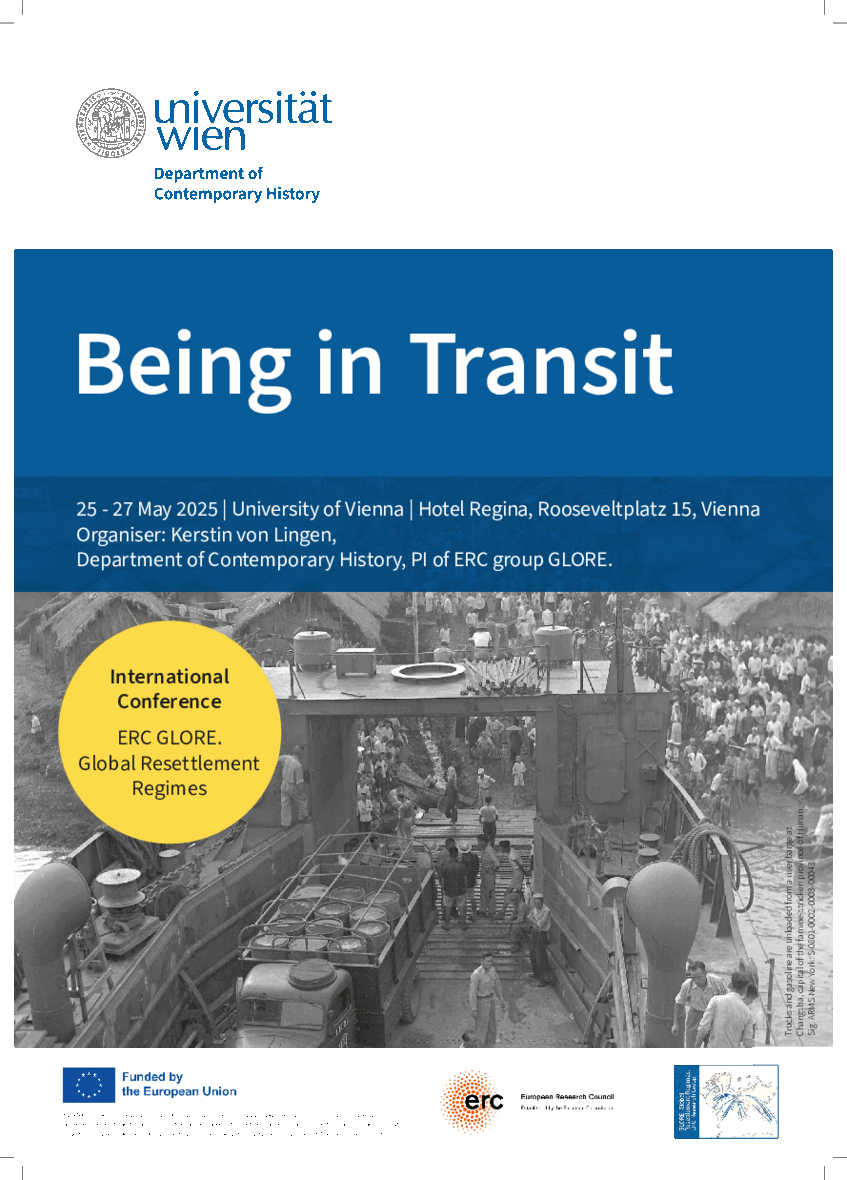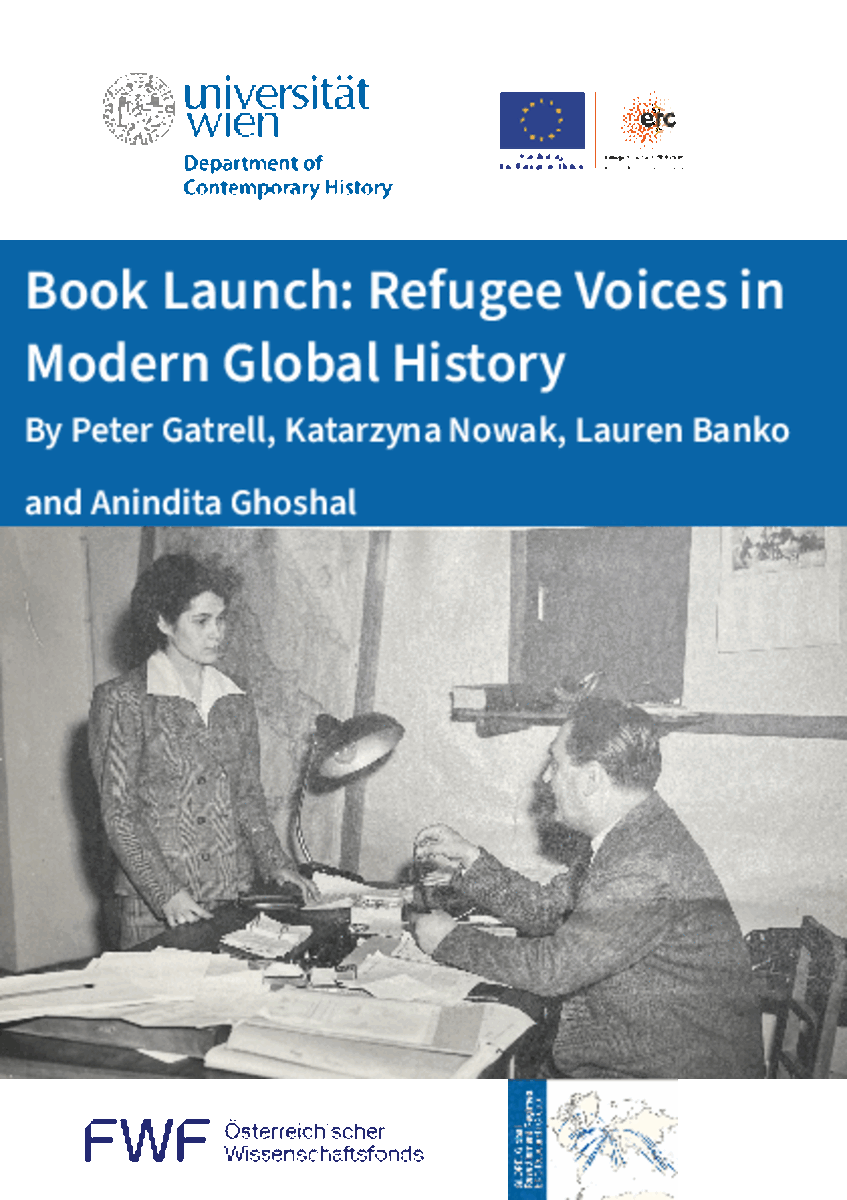Being in Transit
International Conference | ERC „GLORE. Global Resettlement Regimes” |25 – 27 May 2025
World War II and its immediate aftermath saw an unprecedented scale of population movement across the globe. Managing population flows thus became a core function of the successively emerging international organisations, UNRRA and IRO. For most wartime migrants in Asia, Europe and the Pacific, being in transit was a key feature of their wartime and post-war experience. It often meant months, or even years, of immobility and uncertainty. Collective identifications, too, were being reconstructed within and outside camps. Categorised as displaced persons (DPs), some sought to assert their nations’ place on the political map of the postwar world, and some learned to reinvent group and individual identities to negotiate better futures. While refugees were in a state of transition, the world around them was also unstable. The Greater German Reich and the Japanese empire collapsed. European imperial powers found the old world gone. The civil war in China resumed and foreshadowed unceasing violences in the widely decolonising world. The unfolding global Cold War further redrew the political map. These changes profoundly shaped individuals’ post-war experiences of being in transit and sometimes created opportunities.
The papers presented at the conference offer insights into vastly different yet often contemporaneous forms of ‘Being in Transit’. They analyse the spaces, networks and continuities of transit, ranging from specific localities to international trajectories along which people and ideas could travel, discussing refugeedom in Europe, Asia, North and South America, Africa and Oceania. The papers discuss the agency of actors, groups and organisations to shape the sights and structures of transit, to flourish in them, or to use them for their own ends. They use a variety of sources, including oral history interviews, organisational files, and local and national-level governmental sources, to investigate the temporality of these histories, their dynamics and specific momentum in a world that was itself constantly in transition.
Please register at glore.zeitgeschichte@univie.ac.at
You can download the programme flyer here
Book Launch: Refugee Voices in Modern Global History
By Peter Gatrell, Katarzyna Nowak, Lauren Banko and Anindita Ghoshal will take place in the framework of the Conference. See more information here.
In cooperation with the Austrian Science Fund (FWF) and the Arolsen Archives.


